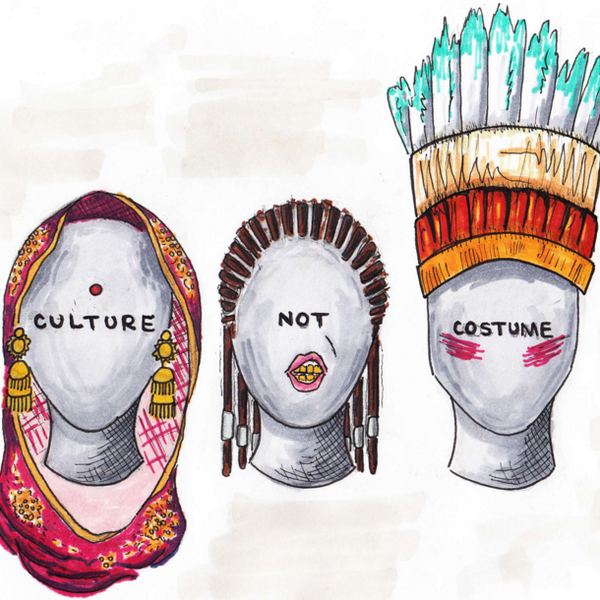Think that “Navajo printed top” you bought from Urban Outfitters is just the right amount of cute and edgy? You probably don’t realize that your cultural appropriation is not only insensitive, it is also pushing indigenous people – mostly women – out of their traditional markets and threatening to completely erase aspects of a variety of cultures.
In Guatemala, women weavers have had enough of the hypocrisy. Similar to the appropriation Urban committed against the Navajo (and countless other communities), companies like Maria’s Bags will sell purses with indigenous designs for hundreds of dollars without the consent of the communities the designs come from. These multinational corporations benefit from a system that appropriates indigenous culture while discriminating against the people behind it.
High-end corporations like Maria’s Bags aren’t the only emerging market pushing indigenous women out of their livelihoods; Chinese companies are also moving in and computerizing these designs to be quickly printed onto things like your Urban Outfitters top. While this is cheaper than, you know, a product that provides its original creator with a living wage, it contributes to a system of globalization that appropriates and misuses cultural traditions while erasing their authenticity and the autonomy of the people responsible for them.
Indigenous women in Guatemala organized with the Women's Association for the Development of Sacatepéquez (AFEDES) to combat the infringement of their intellectual property on November 24 during a march to Congress to propose a bill copywriting indigenous designs to indigenous communities. With the long history of discrimination against indigenous people, the bill faces an uphill battle to passing. However, the recognition indigenous weavers are getting is the first step to a big win for cultural preservation and economic empowerment for marginalized communities in Guatemala and across the Americas.
More and more, indigenous women in Latin America are fighting to have their rights as citizens upheld and for the economic stability they have been denied since colonization. Multinational companies not only appropriate indigenous cultures, they also do not contribute any jobs or income to the communities whose ideals they steal. If you would like to nix your last-season (not to mention offensive) Urban top, consider looking into companies like Trama, Vayu, Asociación de Artesanos Andinos, and Hiptipico.





















